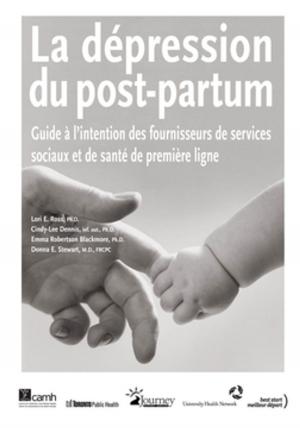| Author: | Robert Hartley | ISBN: | 9781301103447 |
| Publisher: | Robert Hartley | Publication: | June 21, 2013 |
| Imprint: | Smashwords Edition | Language: | English |
| Author: | Robert Hartley |
| ISBN: | 9781301103447 |
| Publisher: | Robert Hartley |
| Publication: | June 21, 2013 |
| Imprint: | Smashwords Edition |
| Language: | English |
Schizophrenic patients who hear voices describe them as being alien and external to themselves and they adopt a paranormal explanation. Although psychiatrists assert that a primary need is to establish the identity of the voices and to use the views of patients as a starting point of any treatment, they commonly dismiss this type of explanation without applying any tests. Such a view does not validate patient’s experience. Dr. Robert Hartley attempts to do so by asking whether spirits and other forms of disembodied consciousness may account for the voices that schizophrenic patients hear. He does so by considering psychiatric research findings, theories and treatments in the light of what is understood about spirits, spirit communication and release, incorporated in the ‘spirits model’. If spirits do account for the voices then any related theory needs to account for the research findings. Can this model explain the major and anomalous auditory hallucination research findings? Triggers, various coping strategies and experiences labelled delusional are also interpreted in the light of the model.
‘Who’s Talking?’ validates voice hearers experience and opens a debate by seeking to answer these questions, and in so doing suggests new considerations, avenues of research, and improvements to clinical practice. Dr. Hartley shares his experiences in actively testing various spiritual approaches and therapies. He considers that a fruitful way to clarify this fundamental issue is to talk to the voices, try out different tests and measures and to implement research into the efficacy of Spirit Release Therapy. There is a need to apply scientific principles, as a new realm of experience is explored. This is necessary, if one wishes to fully consider what might be contributing to the mental health problems experienced by individuals.
Schizophrenic patients who hear voices describe them as being alien and external to themselves and they adopt a paranormal explanation. Although psychiatrists assert that a primary need is to establish the identity of the voices and to use the views of patients as a starting point of any treatment, they commonly dismiss this type of explanation without applying any tests. Such a view does not validate patient’s experience. Dr. Robert Hartley attempts to do so by asking whether spirits and other forms of disembodied consciousness may account for the voices that schizophrenic patients hear. He does so by considering psychiatric research findings, theories and treatments in the light of what is understood about spirits, spirit communication and release, incorporated in the ‘spirits model’. If spirits do account for the voices then any related theory needs to account for the research findings. Can this model explain the major and anomalous auditory hallucination research findings? Triggers, various coping strategies and experiences labelled delusional are also interpreted in the light of the model.
‘Who’s Talking?’ validates voice hearers experience and opens a debate by seeking to answer these questions, and in so doing suggests new considerations, avenues of research, and improvements to clinical practice. Dr. Hartley shares his experiences in actively testing various spiritual approaches and therapies. He considers that a fruitful way to clarify this fundamental issue is to talk to the voices, try out different tests and measures and to implement research into the efficacy of Spirit Release Therapy. There is a need to apply scientific principles, as a new realm of experience is explored. This is necessary, if one wishes to fully consider what might be contributing to the mental health problems experienced by individuals.















